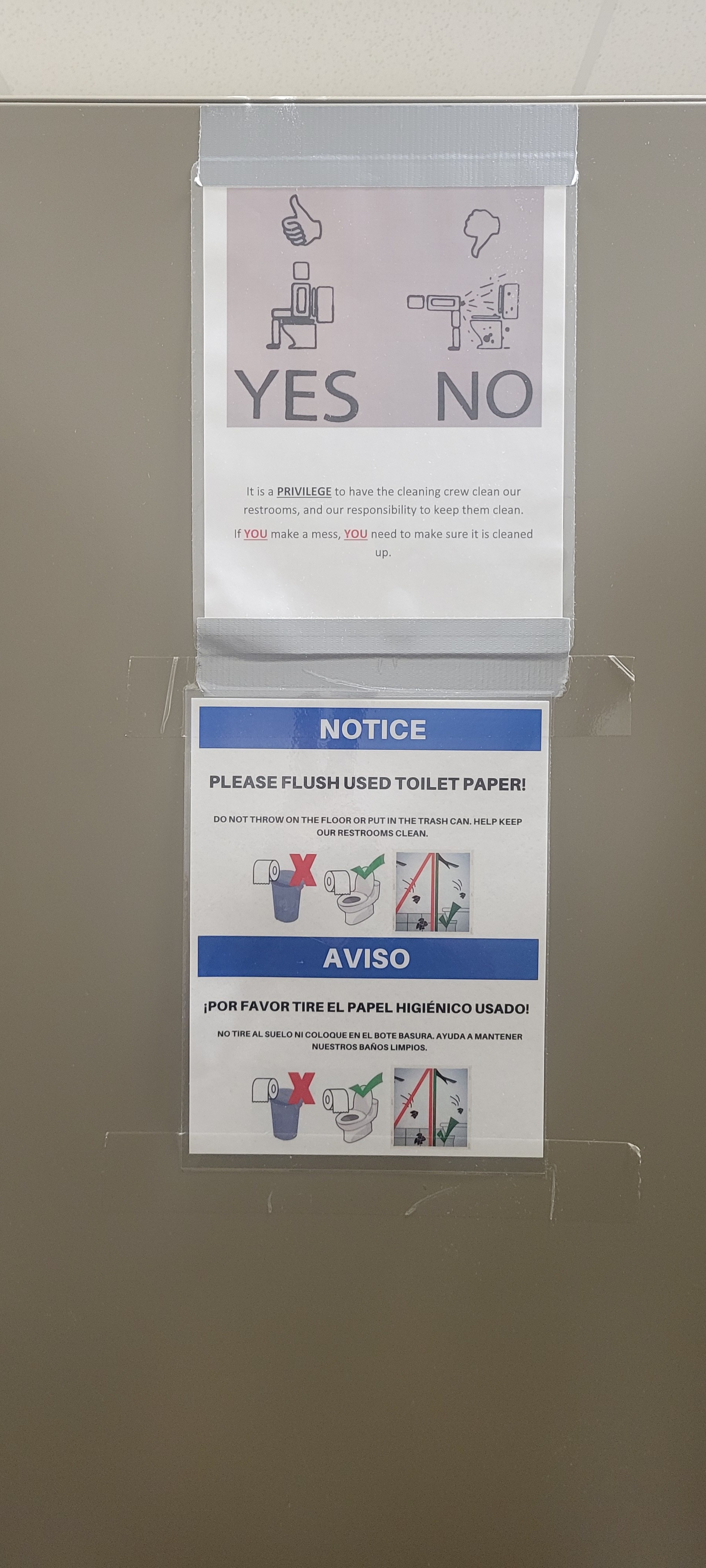Come on, come on, come on now baby…
- 3 Posts
- 172 Comments
 4·13 days ago
4·13 days agoYou ought to be. It’s a struggle meal, not because of the price but because you struggle to keep it down. The noodles feel simultaneously overcooked, limp and somehow grainy. The sauce is virtually flavorless except for a musky odor of nuclear cheese. The consistency of the sauce is like that of milk, and it does not adhere to the noodles. Your bowl will be a nice mix of cold, pallid noodle soup and boiling hot noodle soup.
Go look at a tiny plant sticking out of a sidewalk crack. You’ll feel better
It’s crazy how the first time I read the comic I was fine understanding it but you hacked my brain and now I cannot read that character as a C anymore.

This is great. I literally am taking my morning constitutional at work and took this photo to post here.
I agree with this, and I’ll add that I often have a bit of paralysis around getting into things that I’ve been putting off for years, not because of procrastination, strictly, but because of my fear of failure. 9/10 times, I end up succeeding at the task far better than I could have expected to and I chide myself for doubting my abilities. Rinse and repeat…
Got Dat grapefruit game
Well my comment has more upvotes on it than yours, therefore I can objectively posit that my explanation has greater meaning than yours, therefore I am right and you are wrong. This explanation has zero flaws in it whatsoever.
In all seriousness, I appreciate the comment and I generally feel that you encapsulated the idea more eloquently than I did.
The way I look at it, the big difference is between existentialism and absurdism lie in the problem of universalism. An existentialist is in many cases also going to be a Christian, possibly a Christian who is having a lot of doubt in their faith or struggling with the problem of evil, things like that. Existential philosophy tries to square the fact that we exist as moral beings but we seem to live in a world that lacks a universal concept of morality, so where does our morality even come from if it is not universal? To the existentialist, morality IS the underlying basic law of nature, and thus morality is itself a higher meaning, but morality is not applied universally, and this is a great conflict.
Absurdists, I feel, ultimately accept the fact that morality is NOT necessarily the basic underlying law of nature. Morality is subjective and it is personal, and it is messy and often falls short. I imagine that the absurdists have already gone through the existentialist crisis and come out on the other side with an acceptance of the seeming meaninglessness of it all, of the fact that our moral scruples are ultimately just a way to cope with existence and not some Higher Truth that we must strive towards.
So, in short:
- Nihilism: Life is meaningless, and all pursuit of meaning is futile. — universalist, negative.
- Existentialism: Life lacks inherent meaning, but we must create our own meaning in a world that often seems indifferent. — subjective (not necessarily universalist), can range from negative to positive.
- Absurdism: Life is inherently meaningless, but we can choose to create and embrace our own meaning, even in the face of the absurd. — subjective, generally positive.
I would have fun at a place like this. Just order a different item each time I go and see what the hell it actually is.
Seed oils are disgusting. I’ll stick with butter
 6·2 months ago
6·2 months agoThat’s Oasis, isn’t it?
 3·2 months ago
3·2 months agoTOXIC
LOTS OF BPA
sudo pacman -S new-heart
“Nah, I didn’t like that girl I went out with yesterday. She kind of had a bad personality… Butter dog though!”
It’s like playing Uno No Mercy, with only reverse-draw-10 cards

 1·3 months ago
1·3 months ago12 is a great number isn’t it. I remember one especially boring job I had for a while I would spend large amounts of time counting in base 12 on my fingers (using my thumb to tap the three segments of my four opposing fingers) into the thousands and start over.

 6·3 months ago
6·3 months agoMy brain actually computes it first as 7 + 5 = 12 + 1 = 13.
I add 5s together a lot at my work (14, 19, 24… 63, 68, 73…) hard to explain why, but my brain jumps to 5s very easily for addition because of it.
We noticed you liked that tree. Would you like to see it again in 45 minutes?



Read the fucking moom